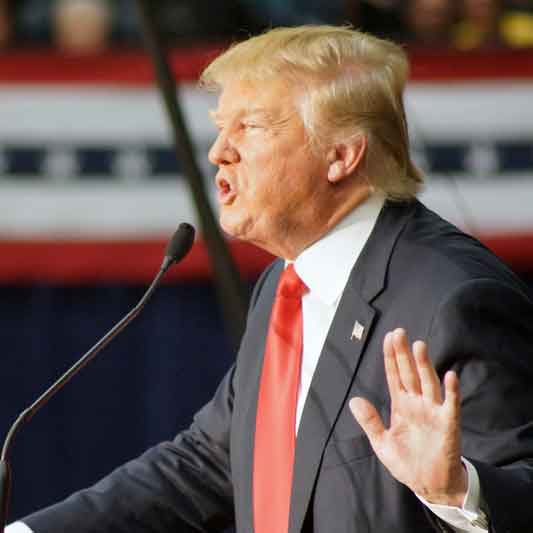It is widely acknowledged that Donald Trump often brands things he disapproves of as “rigged.” He has, in the past, labeled numerous aspects of American society, including elections, the judiciary, and even award ceremonies like the Emmys, as being manipulated by unseen hostile entities.
So, it was not unexpected when Trump dubbed his September 10 debate with Vice President Kamala Harris as “rigged,” both prior to and after the event.
Throughout the debate, Trump made several inaccurate statements, and in certain instances, ABC News moderators Linsey Davis and David Muir intervened to correct him. This action upset many Republicans who appeared to believe that Trump should be permitted to make misleading statements without correction, regardless of the consequences for the audience.
In a post-debate interview with “Fox & Friends,” Trump expressed his disappointment with ABC News. He claimed the network exhibited biased moderation and contended that the debate was “rigged” in favor of Harris. He further proposed that ABC News should have its broadcasting license revoked.
Trump primarily took issue with the debate’s moderators, accusing them of unjustly correcting his statements while not fact-checking Harris. Responding to questions about why he thought the moderators hadn’t fact-checked Harris as thoroughly, Trump said, “They’re dishonest.” He described the debate as being “three-to-one,” suggesting that both moderators favored Harris throughout the debate.
Trump stated, “I think ABC took a big hit last night,” “To be honest, they’re a news organization—they have to be licensed to do it. They ought to take away their license for the way they did that.”
In the interview, Trump consistently voiced his discontent with the media. Despite his grievances, he claimed that he had anticipated such treatment, saying, “Now, I didn’t mind because frankly, I was pretty sure that’s what they would do.”
In contrast, Trump spoke highly of the debate he had with President Joe Biden on CNN earlier in the election season. He stated that CNN had conducted a “much more honorably run debate,” noting that the CNN moderators did not fact-check or question the candidates during the event, a decision mutually agreed upon by both campaigns.
Trump also discussed Harris’ claims made during the debate. He disputed Harris’ interpretation of his comments about the white supremacist rally in Charlottesville, Virginia. Trump insisted that Harris distorted his remarks, asserting that he had explicitly condemned neo-Nazis and white nationalists at the same press conference. “Everybody knew that, frankly,” Trump said, adding, “I think they lost a lot of credibility.”
Trump further disputed Harris’ claim that he intended to implement Project 2025 and that he would sign a national abortion ban if reelected. He labeled these as “Lies,” and suggested that Harris’ comments were part of a larger plan to misrepresent his policies. The debate concluded with Trump expressing confidence in his performance, stating, “I’ve been told I’m a good debater… Maybe my best debate.”
Despite his criticisms, Trump seemed confident about the debate’s outcome. He suggested that his supporters believed he did well, even though polls indicated that Harris may have had the upper hand. A CNN poll, for instance, revealed that 63% of viewers thought Harris outperformed Trump during the debate.
The incident where Trump called for the revocation of ABC News’ broadcasting license is another episode in his ongoing conflict with mainstream media. Throughout his presidency and beyond, Trump has consistently accused major news outlets of dishonesty and bias, with ABC now added to his list of targeted media organizations, which also includes NBC, CBS, and CNN.
Observers have noted a significant difference between criticizing fact-checking and suggesting that a major media outlet should lose its broadcasting license. Trump has recently been promoting an authoritarian approach, including threatening opponents with jail, praising dictators, suggesting a temporary dictatorship in America, and proposing mass deportations in the style of the military. His intention to suppress the free press is a significant part of this agenda.
Legal experts, however, maintain that it is highly unlikely for any broadcast license to be revoked due to perceived bias in debate moderation. The Federal Communications Commission (FCC) regulates broadcast licenses, and there are strict legal standards protecting free speech and press freedom, making such an action improbable.
In the days after the debate, Harris’ campaign has requested a second debate between the two candidates. Although Harris has expressed her willingness to debate Trump again, he has refused the offer, stating that one debate is enough. Trump’s refusal to participate in additional debates may reflect his belief that the moderators were biased against him, but it remains uncertain whether public pressure will lead to another event.

